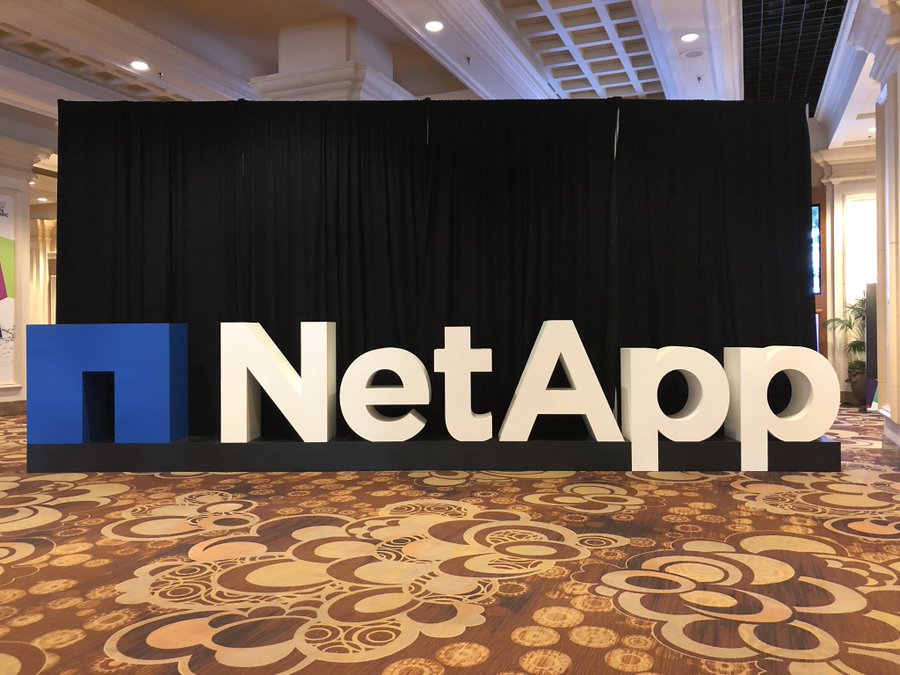 CLOUD
CLOUD
 CLOUD
CLOUD
 CLOUD
CLOUD
NetApp Inc. missed analysts’ forecasts for its fiscal third-quarter revenue and profit, sending its stock plunging more than 11% in after-hours trading.
Growth of 146% in the company’s still-tiny cloud data services business failed to offset ongoing declines in its hardware business, leading to a 10% drop in overall quarterly revenue.
The shrinking business for NetApp, which historically has relied heavily on sales into enterprise data centers, is emblematic of a “very soft primary storage market right now,” said David Vellante, chief analyst at research firm Wikibon, a sister company of SiliconANGLE. “The cloud is siphoning off demand for on-prem solutions and it’s hurting virtually every player who sells to the data center,” he said.
Another problem for companies such as NetApp, whose core business has been built on disk storage, is that flash storage alternatives are now cheap enough that the need for high-performance disk has diminished. “So much flash has entered the system in the last five years that buyers have headroom,” Vellante said. “They don’t need to buy ‘spindles’ for performance reasons anymore like they used to.”
NetApp’s profitability and cash flow remain strong. The company finished the quarter with $3 billion in cash and equivalents and returned $608 million to shareholders through repurchases and dividends. However, that isn’t the growth story that investors covet.
To address that concern, NetApp has shifted its strategy to products that enable customers to access data wherever it lives as if it were on a local file system.
“Customers can be agnostic about using our technology whether on prem or in the cloud via a subscription,” said Chief Financial Officer Ron Pasek, who announced today that he will retire at the end of this fiscal year after a four-year tenure. “This expands our market considerably and, more importantly, it’s highly differentiated, which means competitors probably won’t do it.”
But that doesn’t mean competitors, many of which also sell servers and other data center equipment, aren’t responding. They’re stressing their vertical stack strength as a way to blunt NetApp’s tight focus on storage, said Steve McDowell, an analyst at Moor Insights & Strategy Inc.
“Differentiation for those players involves a ‘better together’ story with on-premise storage equipment, or ‘better together’ with each vendor’s private cloud offerings, and I’m not seeing that strongly play out for NetApp,” he said. “NetApp is selling to its own customers, while that same customer base is defecting to both full-stack providers like Hewlett Packard Enterprise and Dell Technologies and fast-moving tech companies like Pure Storage.”
NetApp delivers its Cloud Volumes ONTAP and Cloud Volumes Storage service through the three major cloud providers, with Google LLC and Microsoft Corp. selling it directly and Amazon Web Services Inc. making it available through its marketplace. “This is making us more attractive to companies that either hadn’t considered NetApp before or it wasn’t economically viable for them to buy our solutions,” Pasek said.
Pasek said the company has set a goal of deriving $400 million to $600 million from software sales by the end of 2021. Analysts gave the company high marks for effort but said there’s a long way to go. NetApp’s strategy is “good and differentiated, but at an $83 million annual run rate it’s not large enough to offset the declining factors,” Vellante said.
The company has worked hard to integrate its file-based software with key public cloud providers, added Pund-IT Inc. analyst Charles King. “As to whether noncustomers find the company’s offerings compelling or desirable, this quarter’s results suggest that the jury still seems to be out,” he said.
NetApp has a steep hill to climb in offsetting diminishing demand for on-premises storage that has been its traditional stronghold. “It’s going to be a long road to making [the cloud] business as rich as the traditional storage market,” said Moor’s McDowell.
Pasek agreed that the company needs to shed its image as a seller of boxes that happen to include software. “It’s about time because we really have been a software company for a long time,” he said.
The third-quarter profit of $1.16 a share fell below analysts’ estimates of $1.18 and sales of $1.4 billion undershot expectations of $1.46 billion. NetApp also lowered fiscal fourth-quarter forecasts to adjusted earnings of $1.28 to $1.36 per share on revenue of $1.46 billion to $1.61 billion, compared with average analyst estimates of $1.39 per share on sales of $1.57 billion.
Aligning with cloud providers has its own perils, since those companies have a track record of pursuing promising market opportunities on their own, Pund-IT’s King noted. “The danger to NetApp and other storage specialists is that muscular cloud providers will develop services that replicate the company’s offerings,” he said.
Pasek disagreed, saying its cloud partners have opened up channels to new prospects. “About two-thirds of new customers aren’t familiar with NetApp, so that’s a great opportunity to talk about what their on-prem needs might be,” he said.
The big challenge is to navigate the transition to a sustainable subscription model at a time when the on-premises storage market is dangerously fragile, said Vellante. “As I wrote recently about the storage market, Icebergs Ahead,” he said.
THANK YOU